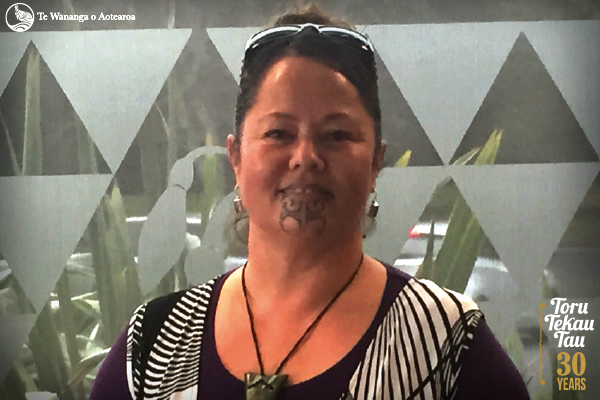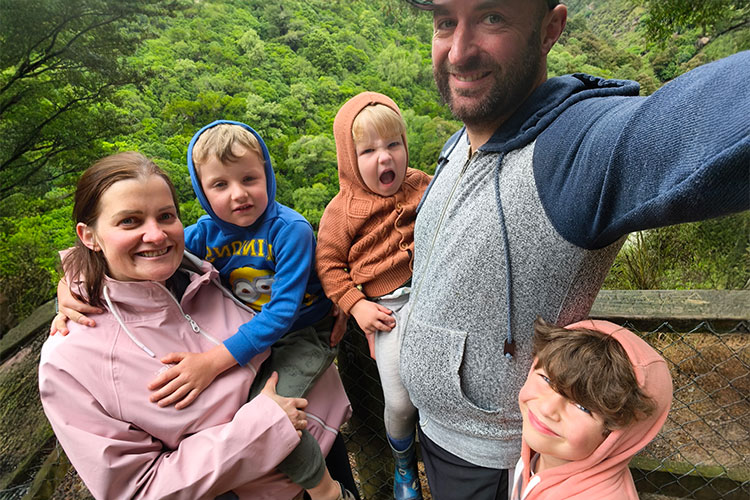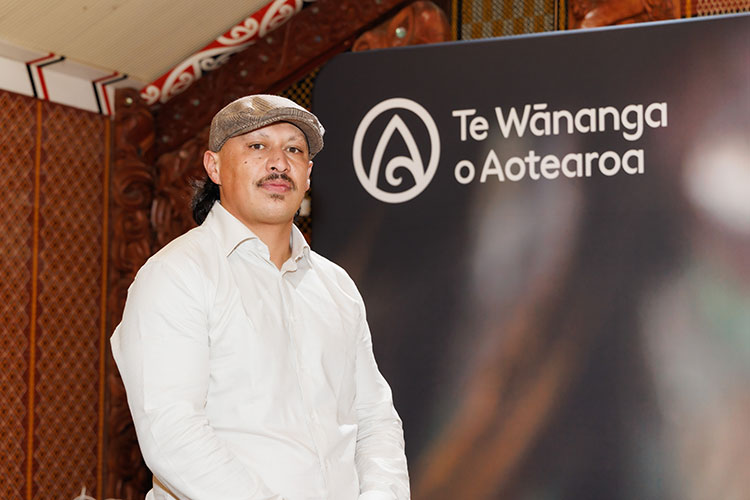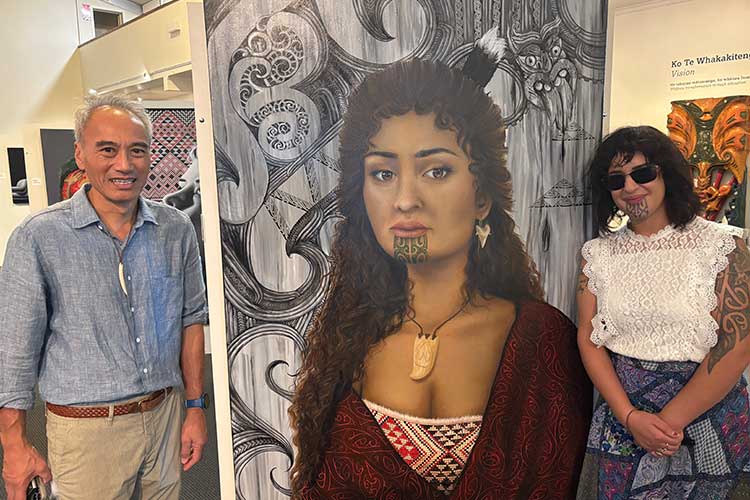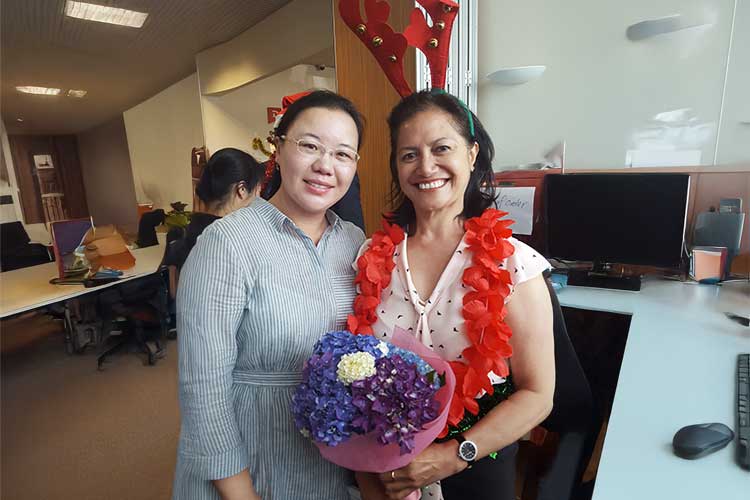A Te Wānanga o Aotearoa pilot of the Kura Reo programme could pave the way for kaimahi to access the language classes regardless of their level of fluency.
Kaiārahi Reo Helena Ferris says if a Te Wānanga o Aotearoa Kura Reo is a success it could lead to twice-yearly classes being held at different sites around the motu.
Helena, who departed her role last week to undertake a new research position, says the idea of the TWoA-funded Kura Reo, which will be held in Mangere from October 4 to 7, came partly through her dealings with Te Ara Reo Māori and Te Pūtaketanga o Te Reo kaiako.
“In communication with our kaiako through emails, telephone calls, being on interview panels and moderations you get to see and hear the reo of our kaiako.”
It was also motivated by talks shared with the Tumuakoranga and Lead Team on their recent hīkoi around the motu and the feeling that the organisation needed to invest greater energy in to te reo Māori among TWoA kaimahi.
“We have gone through our Te Ara Reo Māori student workbooks and addressed the reo errors,” says Helena.
“We are looking at the quality of language in our resources and the language of our tutors and what better way to invest in our language and our kaiako than by having a kura reo.”
Helena says there are clear differences between the Kura Reo o Te Wānanga o Aotearoa and the full immersion national Kura Reo that cater to advanced speakers of te reo Māori.
"The national Kura Reo run for five days but we’re going from Sunday to Wednesday.
The other thing is we don’t have Wharehuia (Milroy), Timoti (Karetu) or Pania (Papa) – we are engaging our own tutors, including our very own Te Panekiretanga o Te Reo graduates, who hopefully aren’t as scary,” she says.
This year’s programme will cater to two distinct groups - 70 TWoA kaiako from Te Ara Reo Māori and Te Pūtaketanga o te Reo programmes from throughout the motu and 30 selected staff from Te Puna Mātauranga.
Helena says the Kura Reo is free of cost for TWoA kaimahi and forgoes the need for TARM Kaiako Investment Training where the kaiārahi goes around the motu to help with the professional development of the kaiako.
It also slots in nicely with the organisation’s Reo Ora strategy in aiming to lift the capability and quality of reo Māori speaking kaimahi throughout TWoA.
Helena says tauira new to the Kura Reo environment can expect “a hākari week of language”.
"There are kupu hou, sentence structures and the different ways the kaiako teach.”
“It’s a week that makes you hungry for more.
Once you have done one you are saying "wow I want to go back for more of that".”
A registration form for those interested in attending the Kura Reo is on Te Kete.
-
 Kāinga
Home
Kāinga
Home
-
 Kāinga
Home
Kāinga
Home
-
Ngā ĀkorangaOur Programmes
Ngā Ākoranga - Our Programmes
-
Ngā RoheOur Locations
Ngā Rohe - Our Locations : Main Service Centres
-
Ngā TauiraStudents
Ngā Tauira - Students
- HonongaStay Connected
- Te WhareAbout Us































